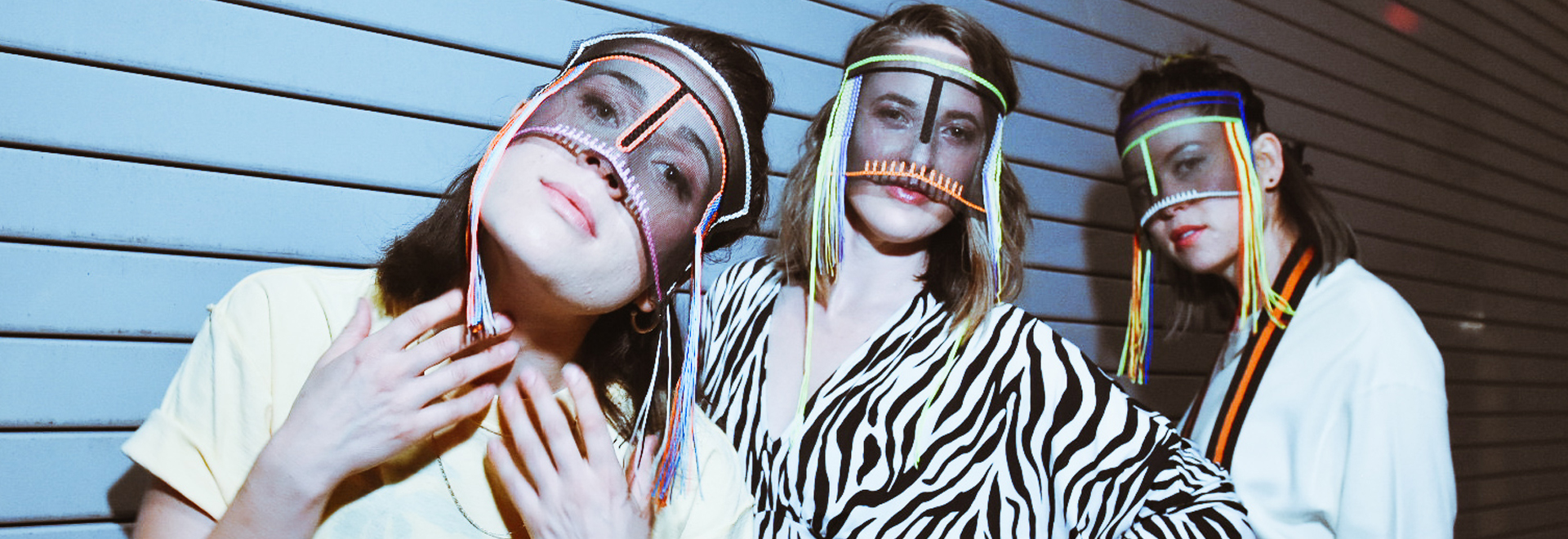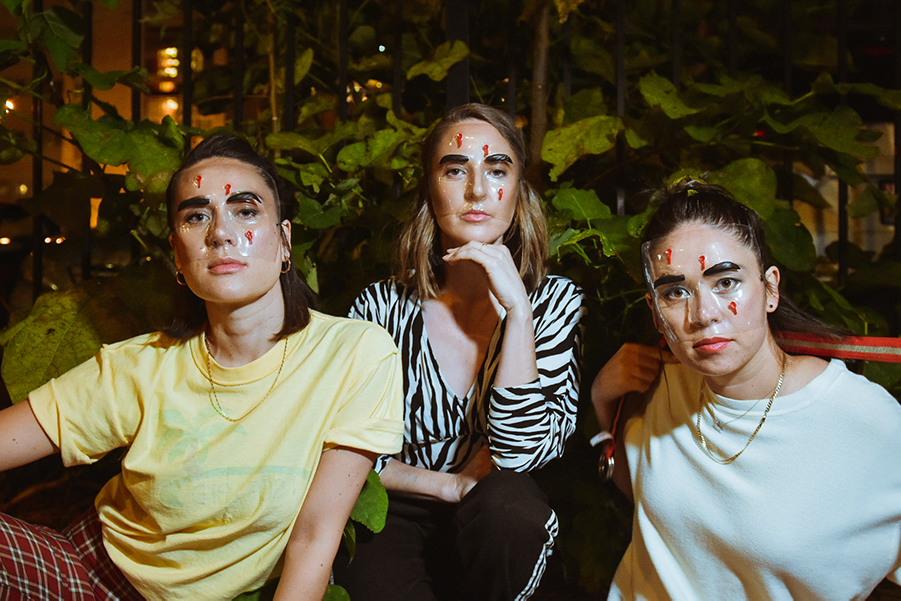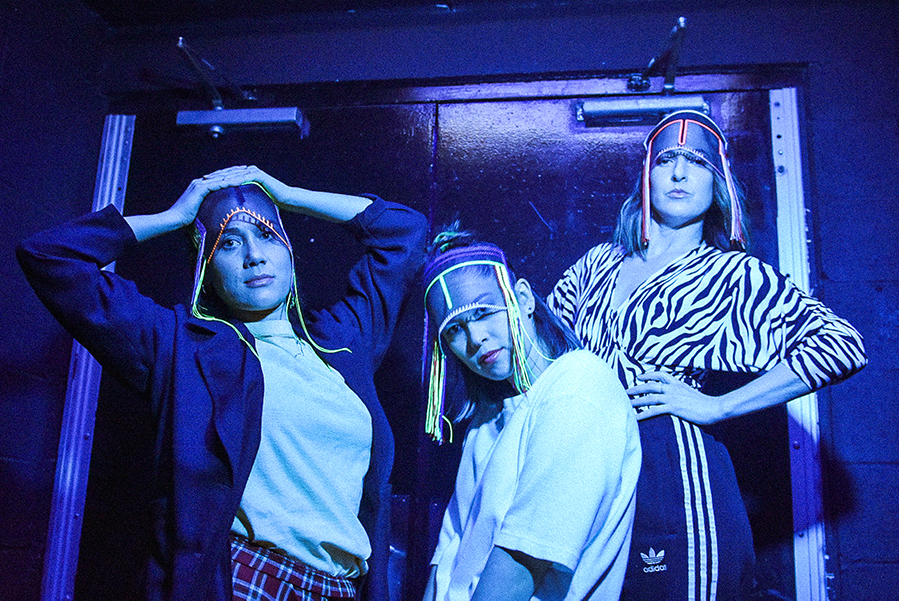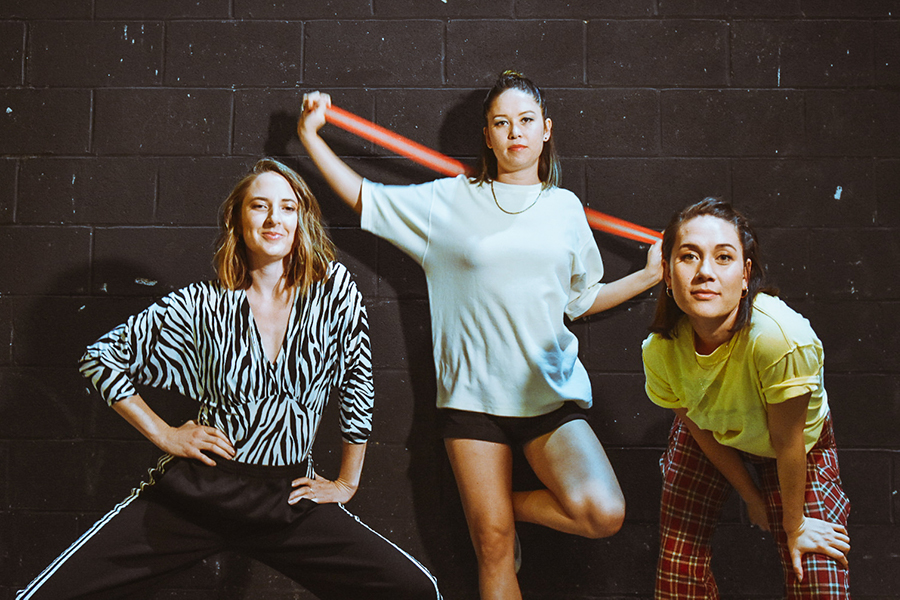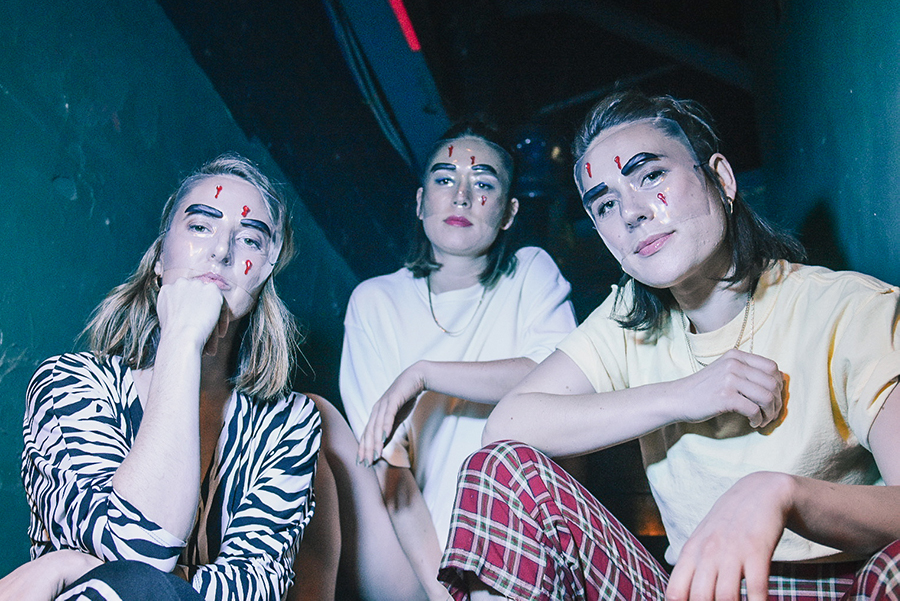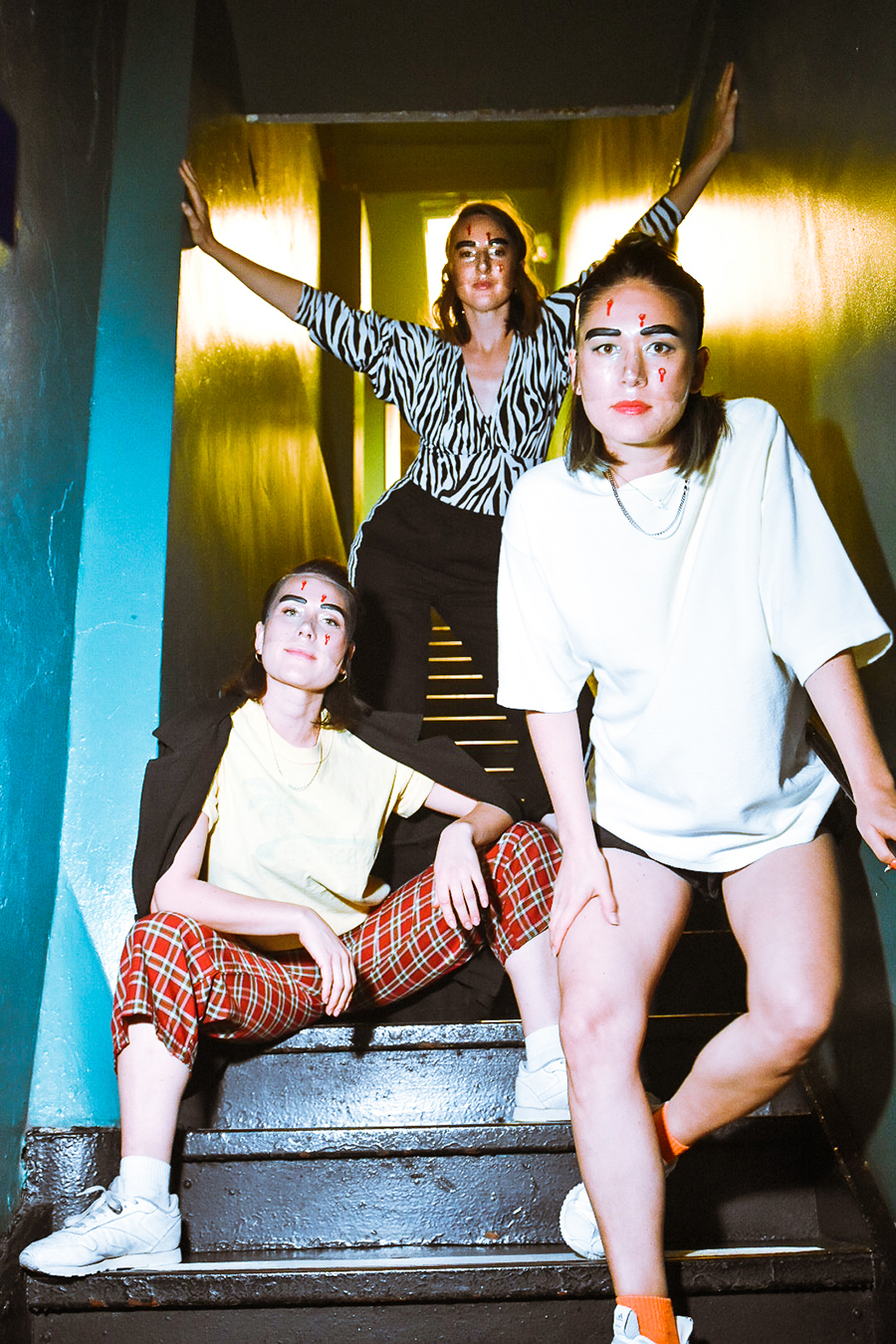HAPPY: Yeah, for sure. Could you give us some examples?
MIE: I feel like, in a lot of the tracks, we’re exploring the human consciousness, or commentary on humankind and how fickle we are. And also about technology and then about letting out, I don’t want to say rage, but energy? Like expressing your bolder self in the songs.
CLAIRE: I do want to say rage as well because I feel like there’s not that much of a forum or platform for us to let out our rage in a healthy way. And I feel like some of the songs could be really beneficial for that. Like, being able to let that feeling out in a positive way, I guess. Or, just let it out, period, as opposed to be sitting with it and it coming out slowly. I like that about it.
HAPPY: Yeah, for sure. Well, you said that the album has an attitude of empowerment about it. Were there any particular energies that you were hoping to convey across when you were writing it or did it all just come very naturally?
CLAIRE: Yes, for me, I wanted the voice to be about showing our more confident side because I guess it’s like, who I would want to be my confident self. And then to put that energy out into the world, hopefully will contribute to others feeling also confident.
HAPPY: Yeah, you’ve always had this amazing intersection with Haiku Hands between visual art and pop. Were there any particular artistic influences that went into this album?
MIE: Hmm, I keep on thinking about the Hello Nasty album by Beastie Boys and how the album has all these interludes. And sometimes they’re just talking or there’s… yeah, you go on different journeys within each song. And I feel like that really inspired me listening to that and then listening to our album, I could see some parallels in that. So, the Beastie Boys and Hello Nasty, they were definitely an inspiration in how we put the album together.
CLAIRE: I think there’s heaps of influences, so many. Aesthetically, we just collect things all the time and share it with each other.
HAPPY: Are there any themes that you find continually started to crop up when you were writing the record?
CLAIRE: More like an attitude, I think. Well, what is that attitude like? I guess a defiant attitude about like a non-conformist, independent.
MIE: Unexpected, I think.
CLAIRE: And then, ideally, we’re gonna be aware, someone who’s like almost existential… or maybe that’s not the right word. But who sees subtext of what’s going on around us with each other and ourselves and stuff.
HAPPY: Yeah, for sure. So, do you guys ever find it hard to step back from a project and to say, hey, this is done, I’m finished? Especially when you’ve got such a diverse range of influences coming in.
CLAIRE: Yeah, I think that’s like a huge lesson for artists, not getting caught up in perfectionism. Like, everyone has such different approaches as well, of working. So yeah, that has definitely been a challenge: how to balance that. I think I’m often the one who’s like, it’s done, don’t change it!
MIE: Yeah, we all have listened to similar music, but I think we’ve all been drawn to kind of different music in our day to day listening. I’m really drawn to punk music, and so I’m always like, first take is always the best. I know that that sound doesn’t sit in the pop world as much, but I’m drawn to the always the rawest vision of the tracks. And then everyone has other different ideas so it does take a while, but then makes it great, I think, having all those different minds in one thing. It’s definitely better, different abilities and strengths.
